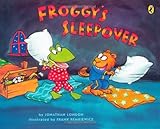Female Bottlenose Dolphins Use "Baby Talk" With Their Calves
Language
Reading Level
Listen to Article
Alignment

When it comes to brainpower, bottlenose dolphins are second only to humans. The intelligent animals are known to use tools, help fellow dolphins in distress, and even prepare their food to make it more palatable. Now, a new study has found that just like humans, dolphin moms change their voices when "talking" to their young ones.
Every bottlenose dolphin has a unique whistle. Similar to a human name, it allows them to identify themselves when communicating with other dolphins. But researchers at Florida's Sarasota Dolphin Research Program found that female dolphins alter their signature sound when they are around their calves.
Marine biologist Laela Sayigh first noticed dolphins using "motherese," or baby talk, in 2009. However, the researcher did not get an opportunity to investigate it further until recently. For the study, Sayigh and her team analyzed audio recordings of 19 female dolphins with and without calves. The sounds were captured during catch-and-release health checks of dolphins in Sarasota Bay from 1984 to 2018. The scientists randomly selected 20 whistles from each individual. They found that the mothers used a wider range of pitches around their calves. They were either higher than their regular whistles or slightly lower.
The researchers revealed their findings in the journal Proceedings of the National Academy of Sciences on June 16, 2023. They are unsure why dolphins change their voices when talking to their offspring. In humans, the higher pitch is believed to hold the infant's attention and develop their vocal skills.

But dolphin calves establish their unique calls by age two. Hence, it is unlikely that the mother is teaching them how to pronounce their "name." Sayigh speculates that the pitch change helps the calves identify the whistles specifically directed at them, strengthening the bond between mother and child.
The researchers say that the purpose of using "motherese" may be different in humans and dolphins. However, the study could help scientists understand the evolution of language in vocal species, including humans.
Resources: Science.org, theguardian.com, cbsnews.com

Get the Workbook for this article!
Workbook contains: Article, Reading Comprehension, Critical Thinking Questions, Vocabulary in Context (+ answers), Multiple Choice Quiz (+ answers), Parts of Speech Quiz (+ answers), Vocabulary Game (+ answers)Cite Article
Learn Keywords in this Article
39 Comments
- 4myschool12 monthssome day dolphins are gonna be smarter than humans ;> (cant wait lol)
- random_phantom12 monthsImagine just throwing food on the dinner table (lol)
- random_phantom12 monthsThe noise is so squeaky!!
- summer_beach12 monthsThat is so cool! I love dolphins! 🐬
- coolismyjam12 monthsI wrote this on the day it was made. I am gonna present tomorrow.
- coolismyjam12 monthsMy little sister uses baby talk. I'm saying something important, and she's just like, "Mama!" Then my dad puts her in timeout.
- alfonsosause12 monthsdolphin!!!🐬




